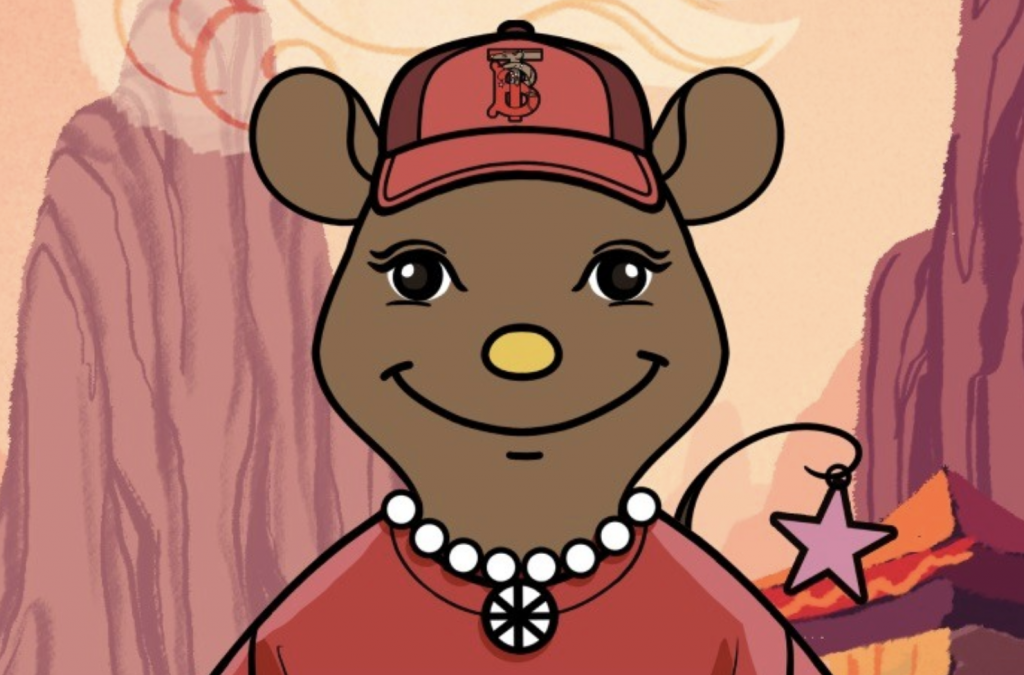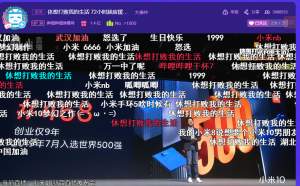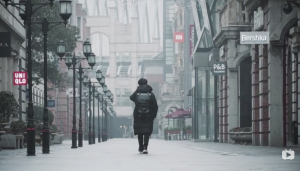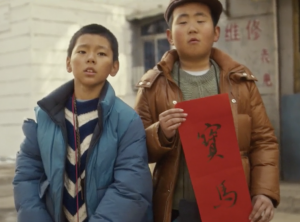
Burberry’s Ratberry character has been a hit
For their Year of the Rat campaigns, a number of brands turned to existing rodent IP such as Mickey Mouse and Jerry of “Tom and Jerry,” while others used more generalized imagery associated with mice. Another approach to the Lunar New Year products involves the creation of branded IP, and this year the most notable example has been Burberry’s cartoon Ratberry character, also known as Bobo Rat in Chinese (博博鼠), which is integrated with the Thomas Burberry monogram for the brand’s holiday collection.
Ratberry became the star of a Lunar New Year campaign that leveraged video, social media, celebrity influencers, and gaming to promote the British fashion house’s new designs. Burberry released a series of short videos through its official Weibo account under the hashtag “Ratberry has arrived” (#博博鼠报道#), showing the trench coat-wearing rodent enjoying adventures around the world — from London’s Chinatown to Turkey — while texting with actress Zhou Dongyu, who became the brand’s first female ambassador in Asia in 2017. Zhou is one of the most popular celebrities in China at the moment, thanks to her starring role in the “Better Days” (少年的你), a youth drama released in October 2019 that was both critically acclaimed and commercially successful.
In addition, Burberry created a WeChat game around Ratberry, which allows players to move the character up a series of platforms to collect gold coins and lanterns along the way, with the opportunity to win prizes from the fashion house. Burberry also released a series of WeChat stickers featuring Ratberry and products from holiday collection.The game is an expansion of the “B Bounce” game that the brand launched in October 2019, which was its first foray into gaming on a global scale, following previous initiatives in China.
“Burberry has seen a growing appetite for gaming among younger consumers, particularly in China,” the company said in a statement. “As interactive digital content is increasingly becoming source of inspiration, Ratberry is another opportunity for consumers to connect with the Burberry community online.”
Overall, the Lunar New Year campaign has been well-received by that target consumer group, with the “Ratberry has arrived” hashtag drawing 120 million views on Weibo and generating 179,000 online discussions around the topic. The playful interactions between Zhou Dongyu and Ratberry in the series of videos have also received positive feedback, roughly split between praise for Zhou and Ratberry and sparking some humorous debate about which one is more adorable.
The success of Burberry’s 2020 Lunar New Year campaign marks a dramatic improvement over last year’s attempt to make an impression among Chinese consumers. In 2019, Burberry featured Zhou along with other celebrities such as actress Zhao Wei in a series of staged family portraits that were criticized for their funereal overtones — completely at odds with the cheerful and festive atmosphere of the Spring Festival as it is traditionally celebrated in China. contrast, Ratberry comes across as a cute and lively character that embodies the warm feelings and joy associated with China’s most important holiday. It’s a good example of how luxury brands must first understand the essential elements of the Lunar New Year holiday in order to reflect them in marketing campaigns and capture positive sentiments from consumers in response. Burberry’s plan to bring its Fall 2020 runway show to Shanghai with additional designs for the Chinese market is another step that will draw it closer to Chinese shoppers.





